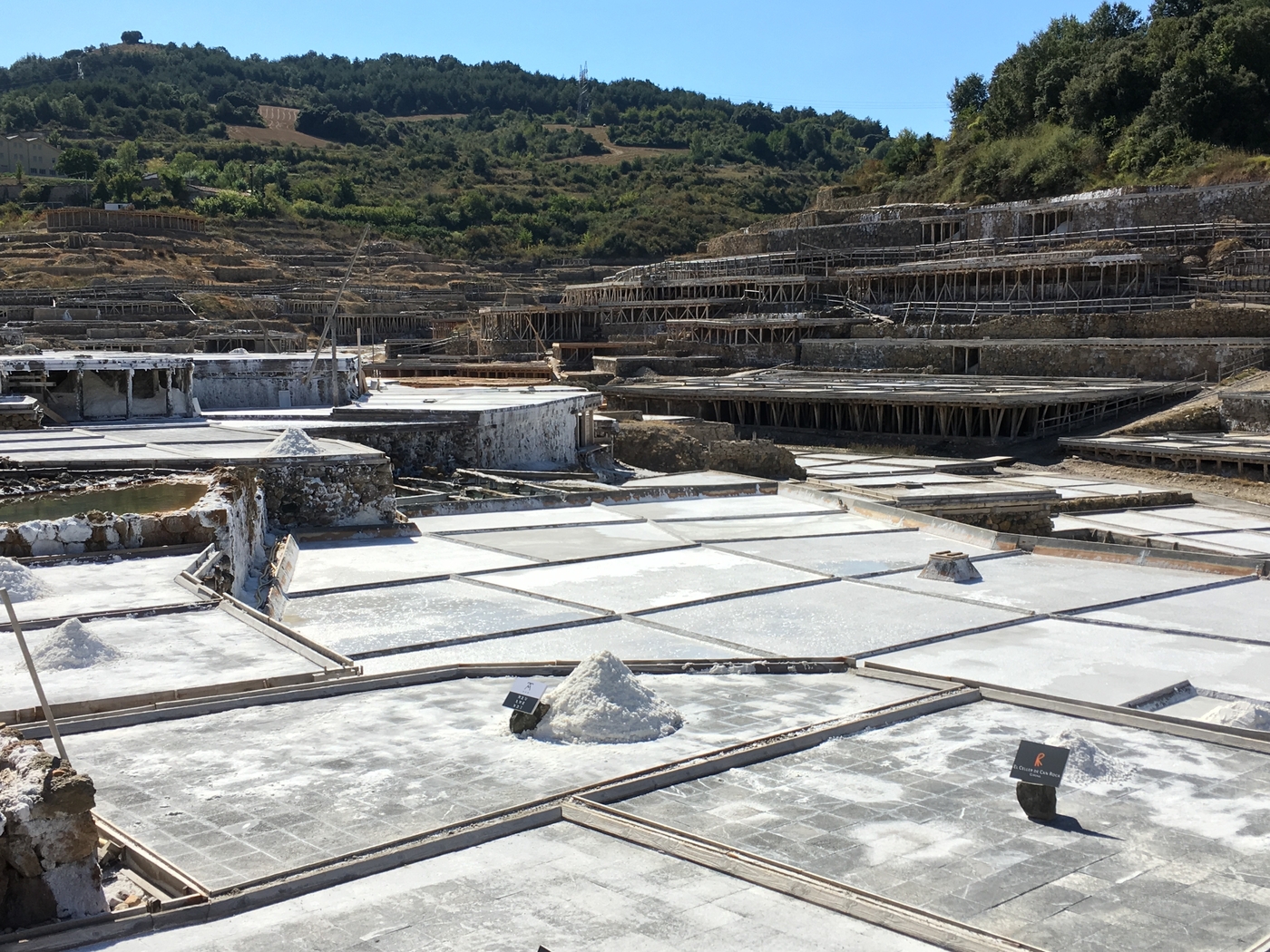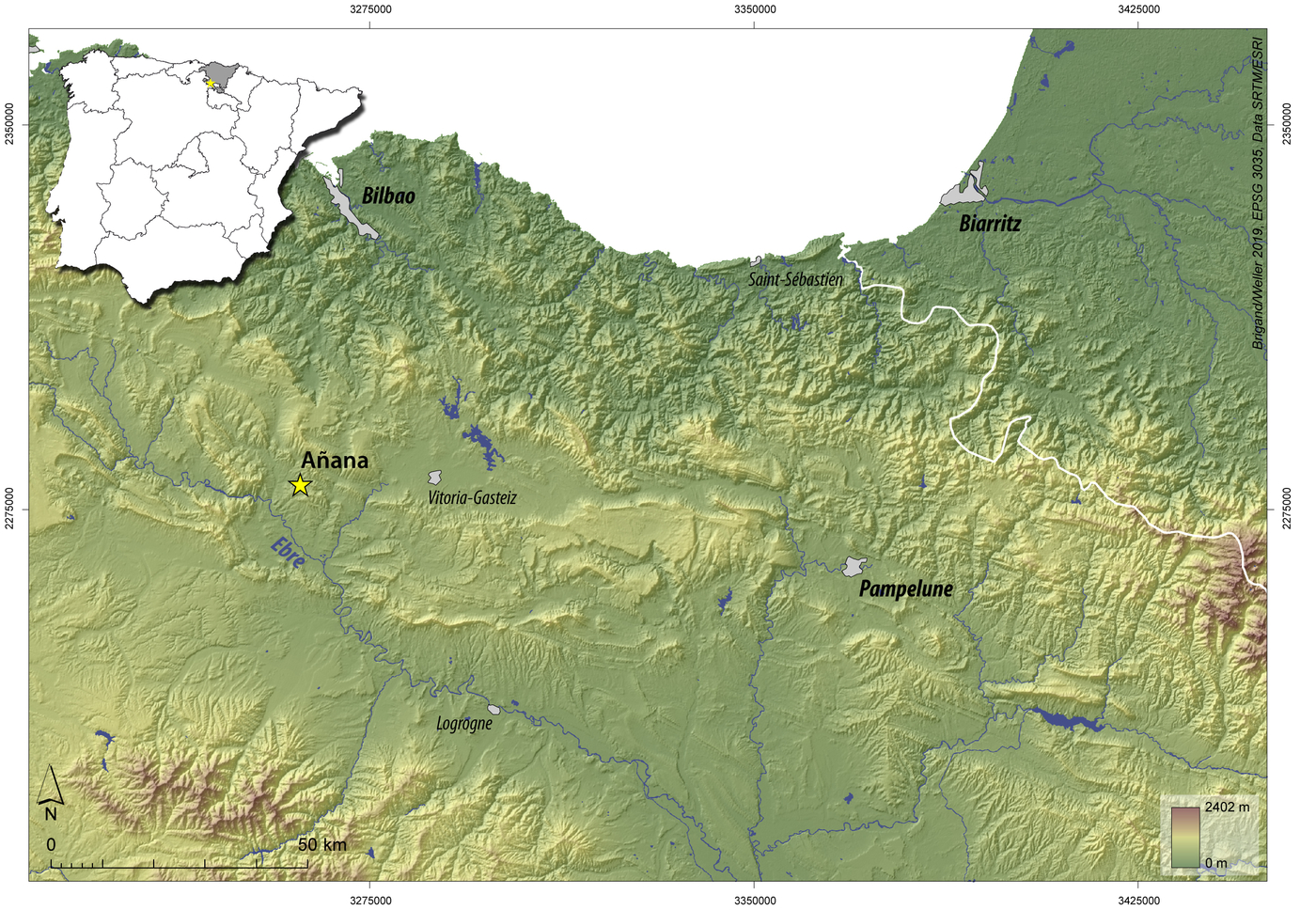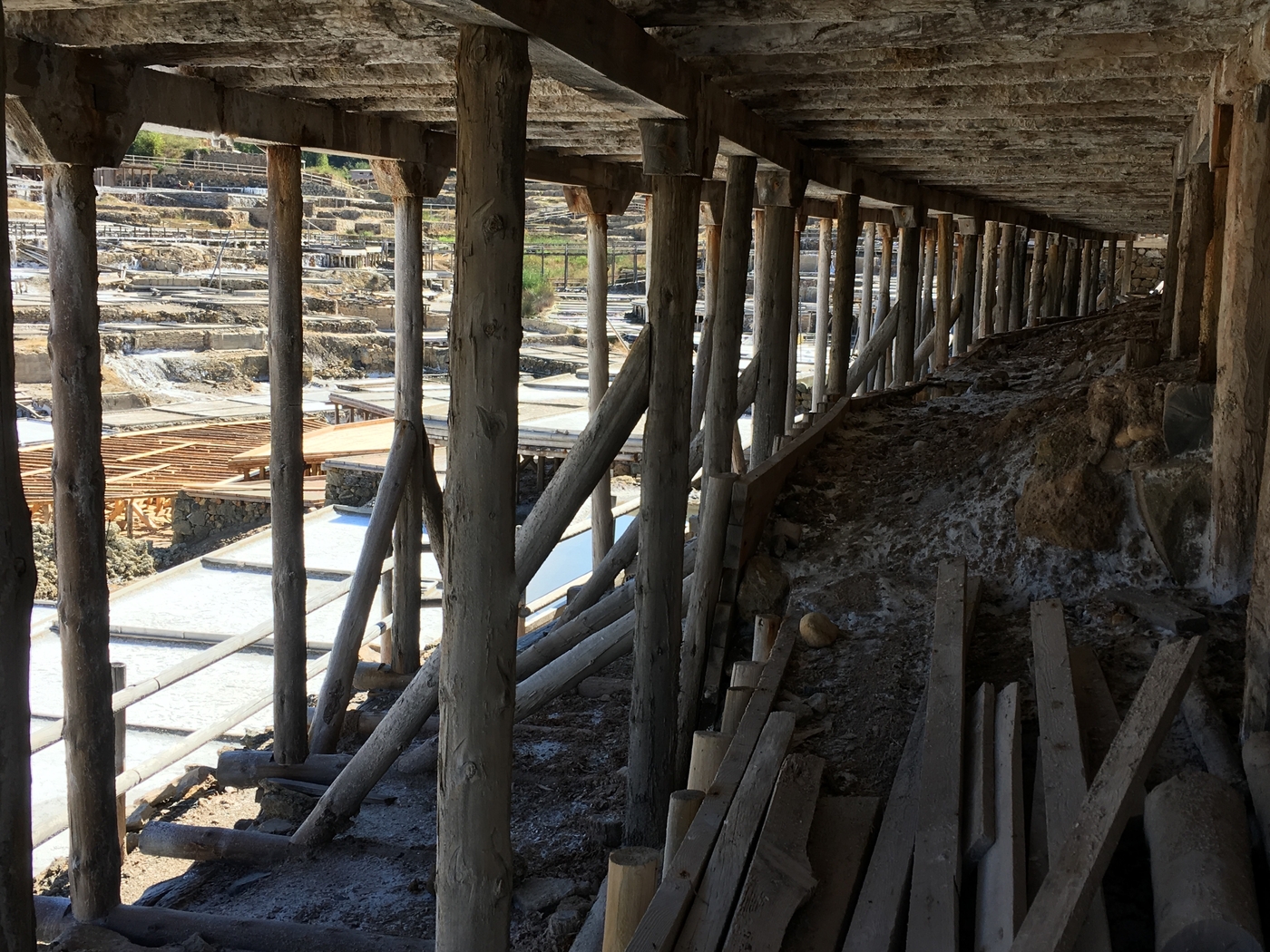The Añana salt flats
The Añana salt flats, in the Spanish Basque Country, are the oldest salt production sites in Western Europe, dating from as early as the Neolithic (second quarter of the 5th millennium BCE).

The resumption of production on this 10-hectare medieval salt flat in 2010, which works according to the principle of solar evaporation, provided archaeologists with the opportunity to explore much earlier remains dating from the end of the Late Neolithic, previously unknown in the Mediterranean region.
Production began in the Basque Country as early as the Neolithic
Just as the salt marshes of Guérande, France, are enjoying a new lease of life, the salt flats of Añana have become, since 2010, a major living heritage site, and a landmark in the local cultural and gastronomic landscape, welcoming 70,000 visitors a year. These natural brine discharges have a high salt concentration, with 250 to 280 g/l of NaCl, almost ten times the level found in sea water. They are also extremely abundant, with a high flow of 2 l/s, making them almost inexhaustible.
Restored salt flats with a long history
After being abandoned in the 1960s, the redevelopment of the old evaporation areas in 2013-2014 provided an opportunity to investigate several stratigraphic levels containing hundreds of sherds and combustion levels on the upstream section of the salt flats. Dated to at least 4700 BCE, these Neolithic salt production sites may have played a major role in the processes of settlement and sedentation in the north of the Iberian Peninsula, and helped to attract and retain the first farmer-herders from the south of France.
Remarkable discoveries for researchers
Absent from regional and national colonisation and sedentation models, this project (2021-2024) aims to highlight the importance of salt resources and their power to attract and form the first Neolithic communities in Western Europe. It involves identifying all of the procedures used, characterizing the management methods and interactions with the natural environment and assessing the socio-economic impact of these first Mediterranean salt production activities at site level, that is, the powerful accumulations of combustion floors extremely rich in pottery finds, but also, more generally, at site level (still in operation) and, more broadly still, at regional level and beyond.
In addition to the identification and detailed excavation of major archaeological deposits (powerful accumulations of combustion floors extremely rich in pottery finds observed in section over several hundred metres downstream of the salt springs), archaeologists will carry out a series of analyses (water, soil, coal, pollen and the like) both on and beyond the site. Surveys and cores will add to contextual data and the inventories and databases for sites identified previously in the region (rock shelters, sheep-pen caves, megaliths and the like) and enable us to assess the formative power of this first Prehistoric Mediterranean salt flat and its outlets in terms of the Neolithization processes in the Pyrenean mountain chain (pioneering settlement of the Ebro Valley as early as the mid- 6th millennium) and the remarkable development of megalithism, pastoralism and trade networks as early as the 5th millennium BCE.
The research team and partnerships
The project benefits from the institutional and/or financial support of the French Ministry for Europe and Foreign Affairs, theUMR 8215 – Trajectoires (CNRS, Paris), the Valle Salado foundation (Añana), the Casa Velázquez (EFE, Madrid) and Université Paris 1 - Panthéon-Sorbonne.
The partner teams are the UMR 5608 - TRACES (CNRS and Université de Toulouse - Jean Jaurès) UMR 7264 - CEPAM (CNRS and Université de Nice), UMR 6249 – LCE (CNRS and Université de Franche-Comté), UMR 7209 - AASPE (CNRS and Museum d’Histoire Naturelle de Paris), INRAP, Qark Arqueología SL, the Universidad del País Vasco-Vitoria; Université populaire du Pays basque and Universidad de Valladolid.
Useful links
- The Laboratoire Trajectoires du CNRS: www.trajectoires.cnrs.fr
- Salado Valley Foundation: vallesalado.com




